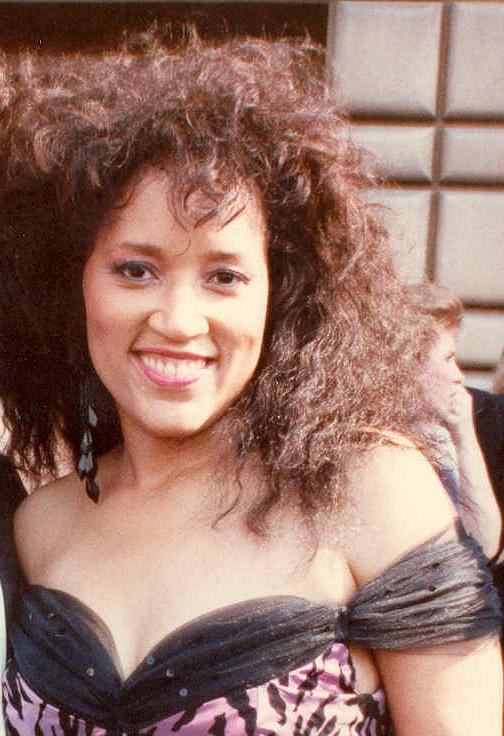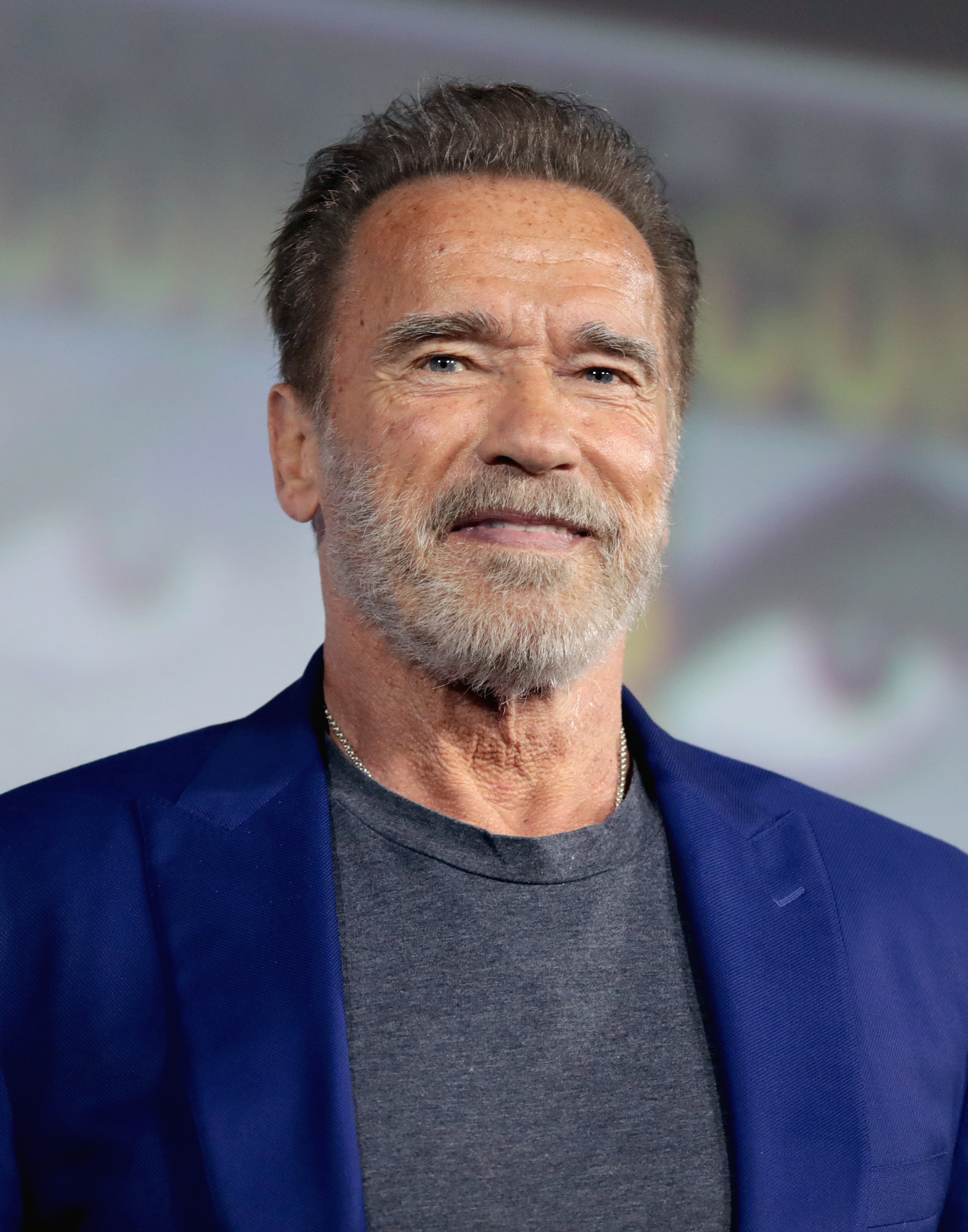
Arnold Schwarzenegger. The name alone conjures images of unyielding strength, cinematic heroism, and political power. From the humble village of Thal, Styria, to the glittering lights of Hollywood and the highest office in California, his journey is the stuff of legend. Yet, beneath the veneer of colossal success lies a deeply personal narrative, one woven with threads of challenge, ambition, and the unspoken truths of a complicated family life. It’s a story that reveals the incredible resilience of a spirit forged in the fires of adversity.
Before he became the iconic “Austrian Oak” or the formidable “Terminator,” Arnold was simply a boy navigating a home marked by strict rules and a palpable tension. It’s a story often overshadowed by his public triumphs, but these formative years, with their unique pressures and profound emotional experiences, were instrumental in shaping the man the world would come to know. His early family environment, far from being idyllic, presented hurdles that would ignite a fierce determination within him, a drive that would ultimately propel him onto the global stage.
Indeed, the foundations of Arnold’s character were laid amidst complex family dynamics, where favoritism, discipline, and even a deeply personal, unfounded suspicion cast long shadows. These internal struggles, though rarely in the spotlight, were the unseen cracks that, paradoxically, strengthened his resolve and propelled him towards a destiny far grander than anyone in his small Austrian village could have ever imagined. Let’s delve into these pivotal aspects that defined his beginnings, revealing how his early life was shaped by an unbreakable will to overcome.
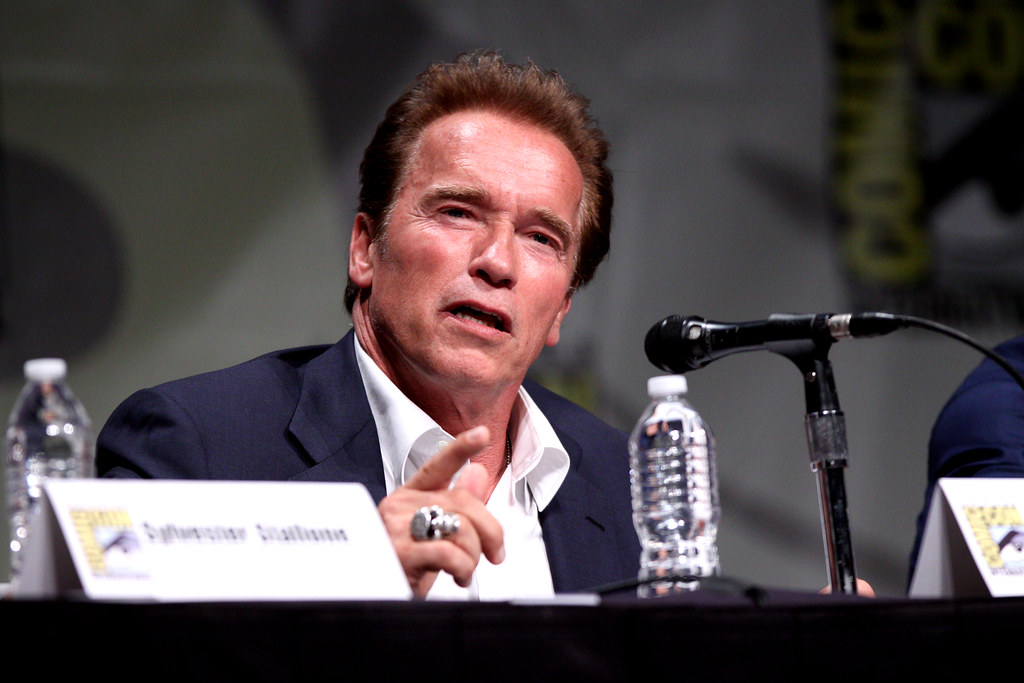
1. **Gustav’s Unfounded Paternity Suspicions**Imagine growing up under the cloud of a parent’s suspicion about your very existence. For Arnold Schwarzenegger, this wasn’t a hypothetical. His father, Gustav Schwarzenegger, harbored an “unfounded suspicion that Arnold was not his biological child.” This incredibly personal and deeply unsettling doubt, even if unproven and ultimately baseless, cast a long shadow over the young Arnold’s relationship with his father and undoubtedly contributed to the complex dynamics within their family home. It’s a revelation that speaks volumes about the emotional landscape of his childhood and the hidden strains that ran through their lives.
The context suggests this suspicion wasn’t just a fleeting thought for Gustav; it was profound enough to fuel “strong and blatant” favoritism towards Arnold’s elder brother, Meinhard. Such a belief, whether expressed openly or simmering beneath the surface of daily life, would inevitably create an emotional distance, a silent chasm between father and son. This unspoken ‘secret’ about paternity, held by the patriarch, served as a foundational crack, influencing interactions and fostering a subtle tension that shaped Arnold’s earliest experiences within his own family unit.
This inherent doubt from his father about his biological connection could have been profoundly damaging, leading a child to question their place and identity. It’s easy to see how a child, sensing such a fundamental rejection, might feel an urgent need to prove their worth, to forge an identity that was undeniably their own and beyond reproach. This relentless search for affirmation, for a place where his belonging was unquestioned, could very well have been one of the earliest, most powerful drivers behind Arnold’s fierce ambition and his ultimate desire to become “somebody.”
The psychological weight of such a parental perception, even if unfounded, is immense. It forces a child to constantly seek validation, not just from the world, but from within themselves. For Arnold, this meant an early immersion in a reality where his father’s acceptance was conditional, perhaps even unattainable. This deep-seated family secret, despite being a figment of Gustav’s imagination, left an indelible mark, serving as a constant undercurrent to Arnold’s burgeoning sense of self and his drive to overcome all perceived limitations.
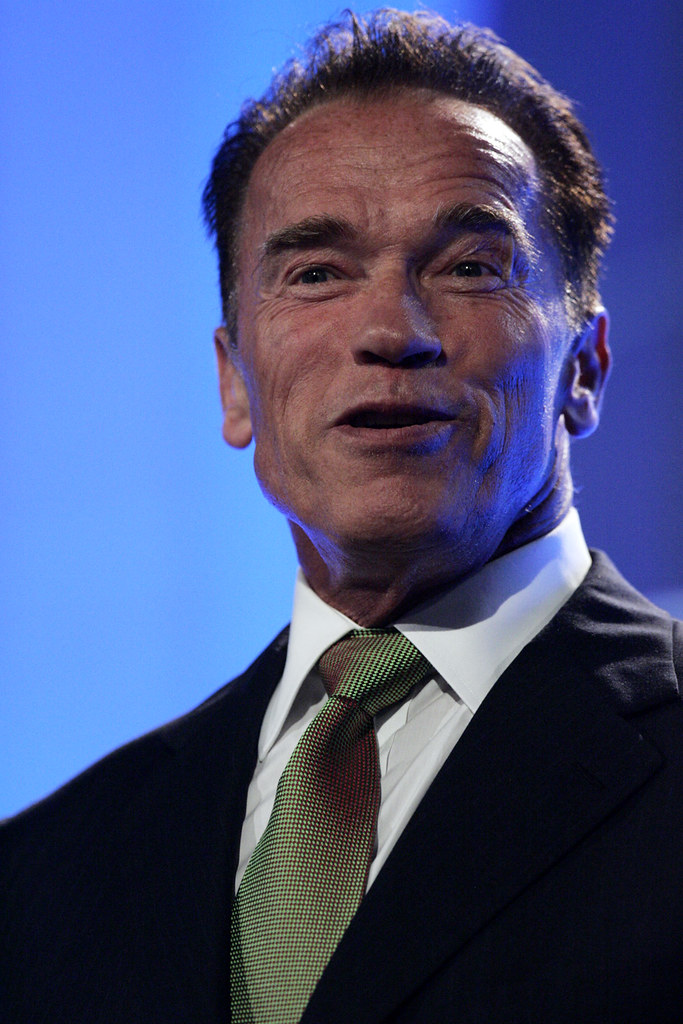
2. **Gustav’s “Strong and Blatant” Favoritism Towards Meinhard**Flowing directly from Gustav’s deeply personal suspicions regarding Arnold’s paternity, Arnold’s upbringing was further complicated by “strong and blatant” favoritism shown towards his elder brother, Meinhard. This wasn’t subtle; it was an open display that undoubtedly carved a deep emotional rift within the household and contributed to a sense of imbalance and unfairness. It’s a common human experience to compare oneself to a sibling, but when a parent’s preference is so clearly defined, it creates an especially challenging and often painful environment for the unfavored child.
In a family unit, such overt favoritism can feel like a profound injustice, a constant and unwelcome reminder of one’s perceived inadequacy. For young Arnold, it meant growing up in the distinct shadow of a brother who, in his father’s eyes, was demonstrably preferred and perhaps even seen as the “true” son. This dynamic, deeply rooted in the unfounded paternity suspicion, effectively “broke” the ideal of an equal, loving family environment, forcing Arnold to confront inequality and a lack of unconditional parental acceptance from a very tender age.
While the context doesn’t detail direct rivalry, the existence of such blatant favoritism inherently creates a competitive, if not strained, relationship between siblings. Arnold would have been acutely aware of his father’s preference, an awareness that could have fueled both resentment and a desperate need to differentiate himself and carve out his own unique identity. This emotional landscape, where one child was elevated and the other diminished, added another layer of complexity to the family’s internal dynamics, pushing Arnold to seek recognition elsewhere.
Rather than breaking his spirit, this blatant favoritism, coupled with the underlying doubt about his parentage, seemed to have ignited something powerful within Arnold. It presented an early and significant obstacle, a personal challenge to overcome, and perhaps even a profound motivation to seek recognition and success outside the often-stifling confines of his immediate family. In a world where his achievements could not be dismissed or overshadowed by a favored sibling, this external validation became a powerful driver, a catalyst for his independent spirit and boundless drive.
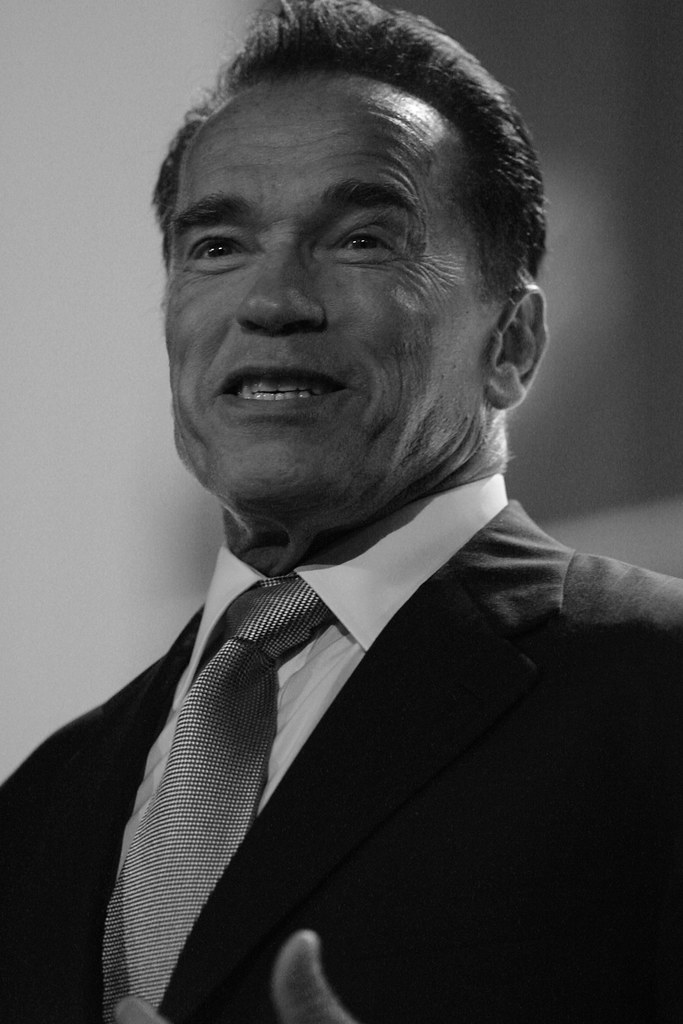
3. **The Scars of Childhood Abuse**Beyond the emotional complexities of favoritism and paternity doubts, Arnold’s childhood was also marked by a harsh physical reality that painted an even darker picture of his home life. In a candid interview with Fortune in 2004, Schwarzenegger revealed the painful truth, stating he suffered what “would now be called child abuse” at the hands of his father. This wasn’t a vague memory; he vividly recalled, “My hair was pulled. I was hit with belts. So was the kid next door. It was just the way it was.” This stark account reveals a chilling aspect of his formative years, a commonplace brutality within his environment.
Arnold explained that his father’s disciplinary methods weren’t an anomaly, but rather a reflection of a broader “German-Austrian mentality” where the emphasis was explicitly “all about conforming.” He observed that parents “didn’t want to create an individual,” and that “many of the children I’ve seen were broken by their parents.” This cultural context, while perhaps offering some explanation for the behavior, doesn’t diminish the profound, lasting impact of such experiences. Being subjected to physical punishment, and witnessing its commonplace infliction on others, undoubtedly created an environment of fear and a constant struggle against the expectation to simply fit in and obey.
Crucially, Arnold declared, “I was one who did not conform, and whose will could not be broken. Therefore, I became a rebel.” This resilience in the face of adversity is a powerful testament to his innate inner strength and determination. Every hit, every reprimand, rather than crushing him into submission, seemed to instead fuel a deeper, more unyielding resolve within him to resist and forge his own path. This early experience taught him to push back against imposed limitations, becoming a defining characteristic of his life.
The desire for escape became an incredibly powerful and specific motivator for young Arnold. The very acts intended to break his spirit instead forged a maverick, someone fiercely determined to carve out his own unique path in the world. He articulated his youthful ambition, born directly from this pain and defiance: “Every time I got hit, and every time someone said, ‘You can’t do this,’ I said, ‘This is not going to be for much longer because I’m going to move out of here. I want to be rich. I want to be somebody.'” His yearning to escape and achieve success was thus deeply intertwined with the trauma of his upbringing.
This profound experience of childhood abuse, coupled with the cultural pressure to conform, served not as a roadblock but as an accelerator for Arnold. It instilled in him an extraordinary drive to prove himself, to rise above his circumstances, and to achieve a level of personal freedom and success that would render him untouchable by the limitations of his past. It was a fundamental breaking away from the mold his family and society attempted to impose, paving the way for a self-made destiny rooted in defiance and ambition.
Read more about: The Ghosts of Tinseltown: Unearthing the Fatal Car Crash That Rocked Hollywood, and 13 Forgotten Scandals That Defined an Era
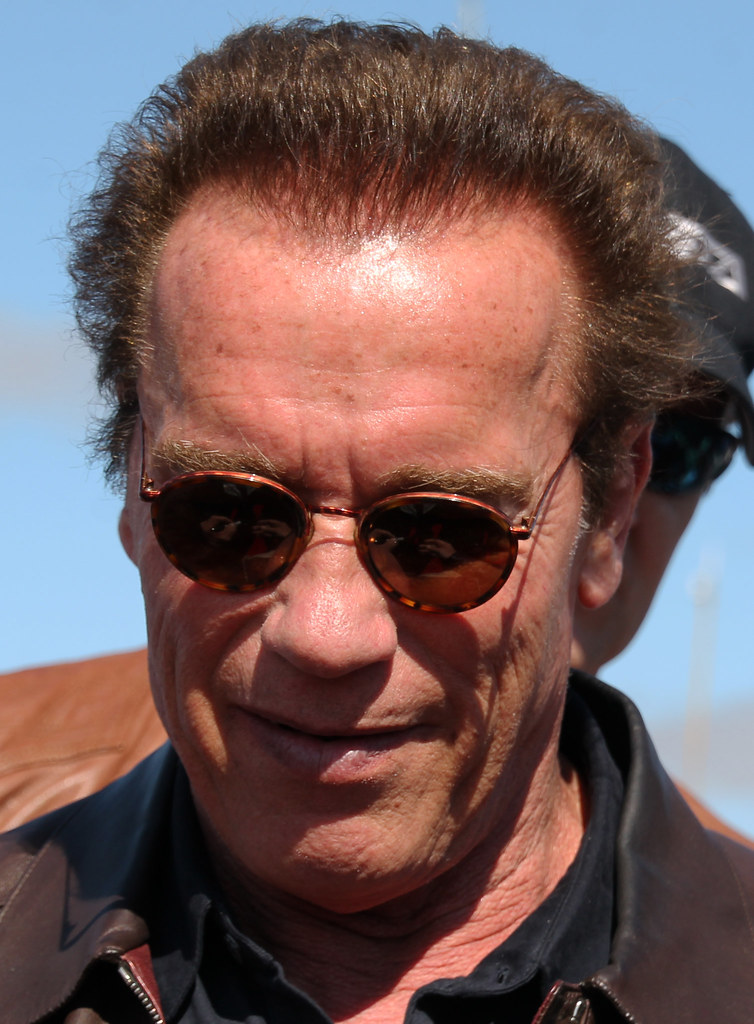
4. **His Mother Aurelia’s Loving Relationship Contrasting with His Father’s Harshness**Amidst the stern discipline, the emotional distance, and his father Gustav’s often-harsh demeanor, Arnold found a vital source of solace and unwavering connection in his relationship with his mother, Aurelia. While his father had “no patience for listening or understanding your problems,” Arnold had a deeply “good relationship with his mother, with whom he kept in touch until her death.” This stark contrast paints a vivid picture of a childhood bifurcated by wildly different parental approaches: one parent harsh and emotionally unavailable, the other offering the warmth and understanding every child so desperately needs.
His mother’s consistent affection and empathetic presence likely provided a crucial emotional anchor, serving as a much-needed counterpoint to the difficulties he faced with Gustav. In a household where the father’s overt favoritism towards Meinhard and physical discipline were prevalent, Aurelia’s unconditional love would have been an absolutely vital source of comfort, reassurance, and validation for young Arnold. Her steadfast support suggests that even within a challenging and often fragmented family structure, there existed a bond of unwavering support that helped him navigate the turbulent emotional landscape.
This enduring connection with his mother highlights a different, more nurturing facet of his family life – one of deep-seated love and mutual respect that transcended the household’s difficulties. Her steadfast role in his life underscores the irreplaceable importance of a kind, nurturing presence, especially for a child grappling with a difficult and complicated paternal relationship. Aurelia provided a lifeline, preventing the “broken” dynamics of his immediate family from completely overwhelming his emotional development and offering him a profound sense of unconditional acceptance that he might have lacked elsewhere.
In a home that could be unpredictable and emotionally taxing due to his father’s temperament and biases, his mother represented stability and emotional safety. Her presence offered a refuge where Arnold could feel seen and loved for who he was, irrespective of his father’s unfounded suspicions or blatant favoritism. This secure attachment with Aurelia likely gave him the emotional resilience needed to withstand the pressures and hardships imposed by his father and the rigid social expectations of his upbringing, giving him the strength to dream bigger.
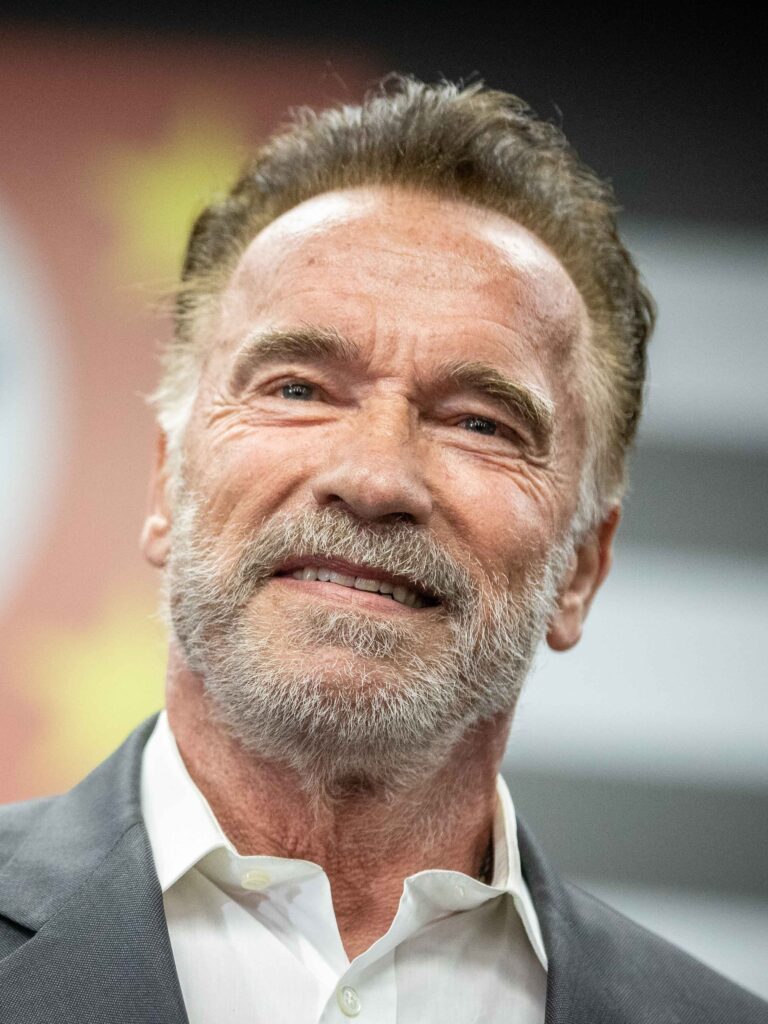
5. **His Decision to Become a “Rebel” and Not Conform**The crucible of his challenging childhood — the unspoken suspicions about his paternity, the blatant favoritism shown towards his brother, and the physical abuse aimed at enforcing strict conformity — ultimately served to forge a true rebel. Arnold explicitly stated, “I was one who did not conform, and whose will could not be broken. Therefore, I became a rebel.” This powerful declaration is absolutely key to understanding his lifelong trajectory, his unwavering determination, and his relentless pursuit of extraordinary goals. His early environment, rather than suppressing his inherent spirit, inadvertently cultivated an unyielding individuality and a fierce desire to carve his own unique path.
From a remarkably young age, Arnold’s aspirations converged into a singular vision, diverging sharply from the conventional expectations placed upon him by his family and society. His father, Gustav, envisioned him following in his footsteps as a police officer or achieving fame in traditional local sports like Bavarian curling, aligning with the family’s athletic inclination. His mother, on the other hand, hoped he would pursue a practical trade school education. Yet, Arnold, with a singular focus, “chose bodybuilding over soccer as a career” at age 14, a choice that marked his distinct, unconventional, and ultimately globally significant path, a clear and early act of rebellion against prescribed futures.
His pivotal decision to pursue bodybuilding was far more than just picking a sport; it was a carefully plotted escape route, a profound declaration of personal independence and a bold rejection of the limitations of his environment. He vividly articulated his deeply personal motivation to Fortune, declaring, “I’m going to move out of here. I want to be rich. I want to be somebody.” This powerful vision of a life far beyond the humble village of Thal, beyond the emotional confines of his family’s expectations and the memories of childhood abuse, was the ultimate act of non-conformity. It was his resolute way of breaking free from the constraints and emotional baggage of his early life, asserting his own unshakeable will, and setting a course for unprecedented global success that would forever define him.
This deeply ingrained rebellious spirit wasn’t solely about defiance; it was fundamentally about self-creation and the relentless pursuit of an authentic identity. The constant struggle against his father’s attempts to “break” him through physical and emotional means instead ignited an unbreakable will and an unyielding self-belief. It’s a powerful testament to how incredibly challenging environments can, for certain individuals, become the very forge in which extraordinary ambition, unparalleled resilience, and a profound sense of purpose are tempered and solidified. His early life, full of these “unseen cracks” and deeply personal battles, became the bedrock upon which he built an iconic life.
The transformation from a boy seeking escape to a man conquering the world speaks volumes about the power of his rebellion. It wasn’t merely a rejection of his past, but a repurposing of its pain into an unstoppable drive. The lessons learned from a fractured home life — the need for self-reliance, the pursuit of individual excellence, and the relentless desire for validation on his own terms — became the very tools that propelled him from the small Austrian village to the global stage as a bodybuilder, actor, and politician. His life is a living testament to the fact that even the most difficult beginnings can lead to the most extraordinary destinations, driven by an unyielding spirit born from the desire to not conform.
Read more about: Unmasking Deception: The Cinematic Masterpieces That Lied to Us From Start to Finish
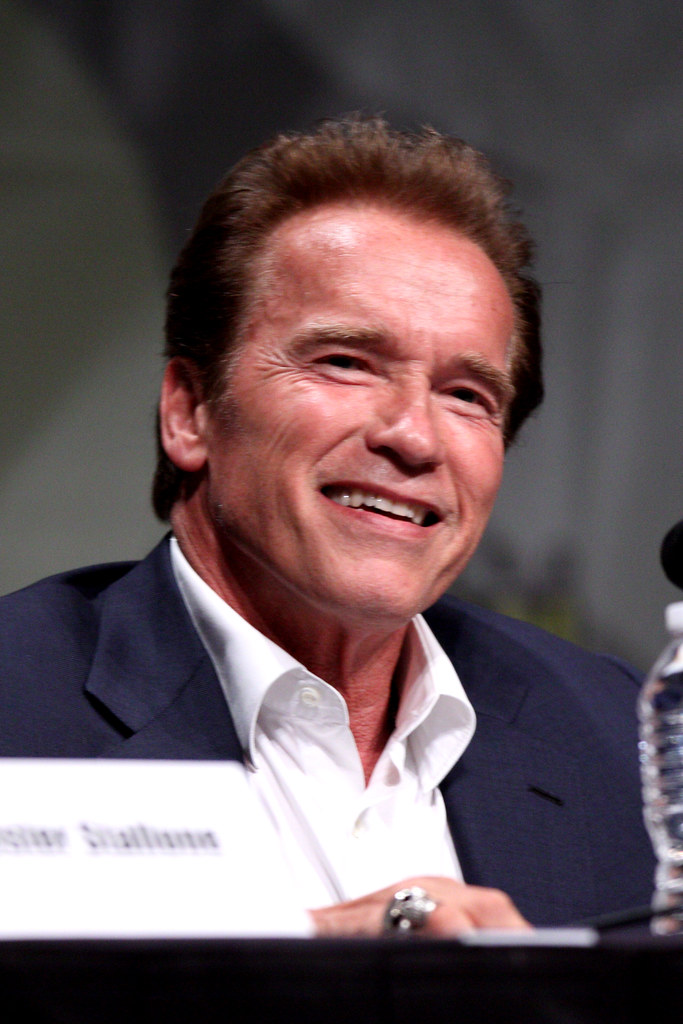
6. **Meinhard’s Tragic Death and Arnold’s Absence**The complex web of Arnold’s family life was tragically tangled further with the sudden and devastating loss of his elder brother, Meinhard Schwarzenegger. On May 20, 1971, the promising young man’s life was cut short in a tragic car crash. The circumstances were particularly heartbreaking: Meinhard was driving drunk and died instantly, leaving behind his fiancée, Erika Knapp, and their three-year-old son, Patrick. It was a profound blow to the family, especially given Gustav’s well-documented favoritism towards Meinhard.
What makes this tragedy particularly revealing about Arnold’s priorities at the time is his decision not to attend Meinhard’s funeral. While the context doesn’t offer a direct explanation from Arnold himself for this absence, it stands as a stark testament to the intense focus and singular ambition that had already come to define him. For many, missing a sibling’s funeral would be unthinkable, but for Arnold, the pursuit of his goals—his escape from the confines of his past—appeared to demand an almost ruthless dedication, even at the cost of traditional family mourning.
This absence paints a picture of a young man intensely driven, perhaps already emotionally detached from the difficult realities of his upbringing. While family ties are often a source of comfort in grief, Arnold’s path was one of forging ahead, seemingly unburdened by conventional expectations. It underscores the depth of his commitment to his aspirations, a commitment born from the very struggles and perceived injustices he experienced within that family unit, pushing him to transcend his past at all costs.
One can only imagine the quiet weight of such a decision, the internal conflict, or perhaps, the sheer, unyielding clarity of his vision that allowed him to make such a choice. It was a moment that further fragmented the family, yet for Arnold, it was another step on a journey where personal success became both his shield and his driving force, cementing his focus on a future far removed from the sorrows of his origins.
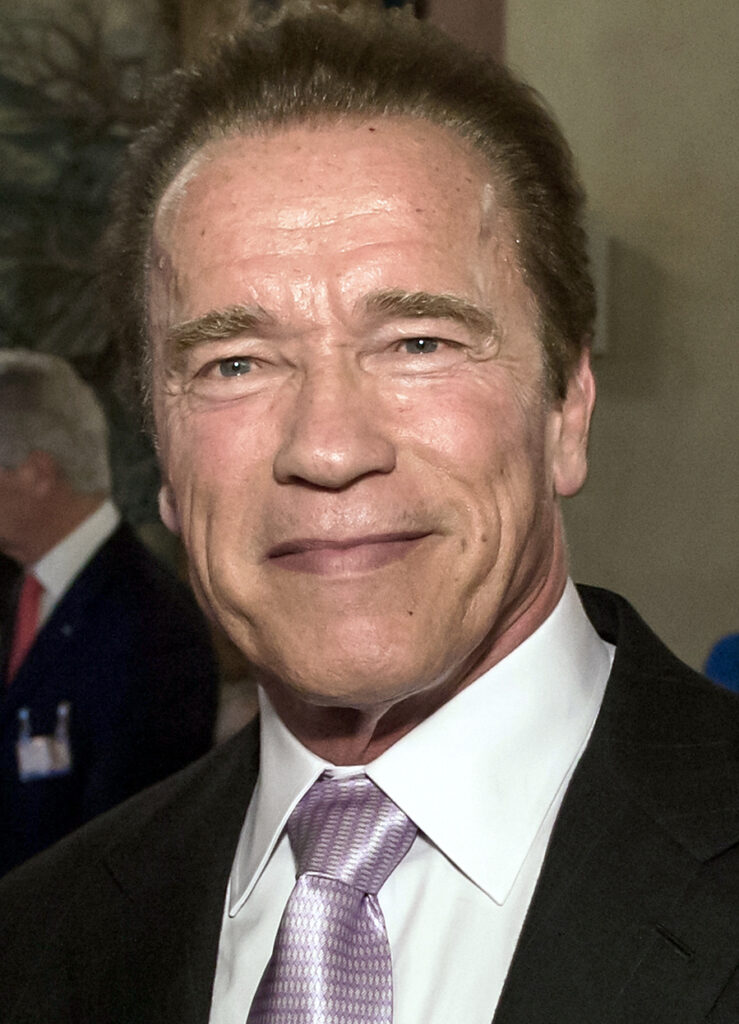
7. **Gustav’s Passing and Funeral Controversy**Just over a year after Meinhard’s death, another significant family tragedy struck. On December 13, 1972, Arnold’s father, Gustav Schwarzenegger, died of a stroke. This marked the loss of the patriarch, the man who had cast such a long and complicated shadow over Arnold’s early life with his unfounded suspicions, blatant favoritism, and harsh disciplinary methods. His passing closed a chapter on a deeply challenging relationship that had, in many ways, fueled Arnold’s drive to escape and become “somebody.”
However, Gustav’s funeral, much like Meinhard’s, became shrouded in controversy regarding Arnold’s attendance. In the bodybuilding documentary *Pumping Iron*, Arnold famously claimed that he did not attend his father’s funeral because he was training for a bodybuilding contest. This anecdote, widely circulated, reinforced an image of Arnold as a man of unparalleled dedication, willing to sacrifice all for his sport, even traditional family obligations. It cultivated a perception of his singular, almost cold, ambition.
Years later, both Arnold and the film’s producer admitted that this dramatic story was, in fact, “taken from another bodybuilder to show the extremes some would go to for their sport and to make Schwarzenegger’s image colder to create controversy for the film.” This revelation casts a different light on the narrative, suggesting a calculated construction of his public persona, even if the underlying sentiment of extreme dedication remained true. It highlights the blurred lines between reality and public image in his ascent.
Adding another layer of complexity, Barbara Baker, Arnold’s first serious girlfriend, recalled that he informed her of his father’s death “without emotion” and that he “never spoke of his brother.” Furthermore, the context reveals that Arnold “has given at least three versions of why he was absent from his father’s funeral” over time. This inconsistency suggests a deeply personal and perhaps unresolved emotional landscape surrounding his paternal relationship, even as he navigated global fame. It speaks to the enduring impact of his early family life and the guarded nature with which he approached such intimate sorrows.
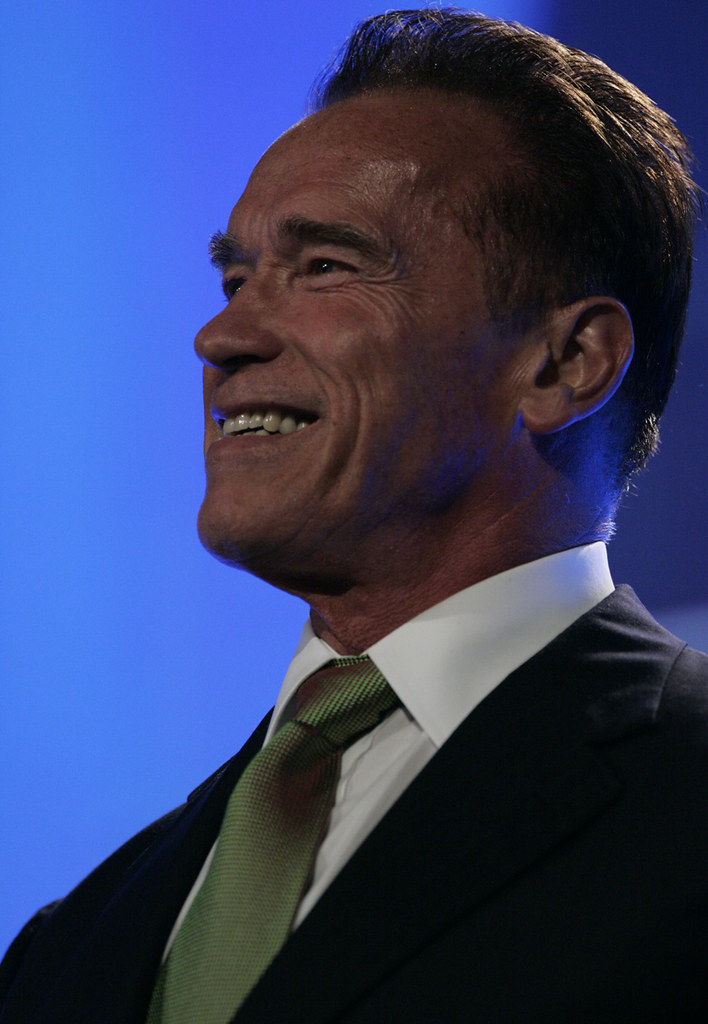
8. **The “Ticket to America”: His Escape and Ambition**The challenging environment of his childhood and the complex dynamics within his family forged an unbreakable desire in Arnold Schwarzenegger: the yearning to escape. This wasn’t a fleeting thought; he “dreamed of moving to the US since age ten.” It was a profound, persistent aspiration, a clear vision of a different life that drove his every action and decision, promising a future far removed from the constraints of his small Austrian village.
For young Arnold, bodybuilding wasn’t just a passion; it was his carefully chosen “avenue of opportunity.” He recognized its power as a vehicle for transformation, not only of his physique but of his entire destiny. As he famously declared, “The Mr. Universe title was my ticket to America—the land of opportunity, where I could become a star and get rich.” This statement perfectly encapsulates how his athletic pursuits were inextricably linked to his grander vision of personal freedom and immense success, a direct result of his rebellion against his prescribed future.
In October 1968, at the age of 21, Arnold bravely made the transatlantic leap, arriving in the United States “speaking little English.” This monumental step represented the ultimate act of self-reliance and ambition, a decisive break from the family environment that had often felt stifling. He plunged headfirst into his new life, dedicating himself to training at Gold’s Gym in Venice, Los Angeles, under the supervision of Joe Weider, a move that immediately signaled his serious intent.
The speed with which he realized his dreams upon reaching American shores is astonishing. By 1970, at just 23 years old, he had already captured his first Mr. Olympia title in New York, a testament to his relentless dedication and the fertile ground America offered for his ambitions. His arrival in the U.S. was more than just a geographical relocation; it was the physical manifestation of his unwavering will to define his own destiny, proving that his earlier dreams of escaping and becoming “somebody” were not just fantasies, but meticulously planned blueprints for an extraordinary life.
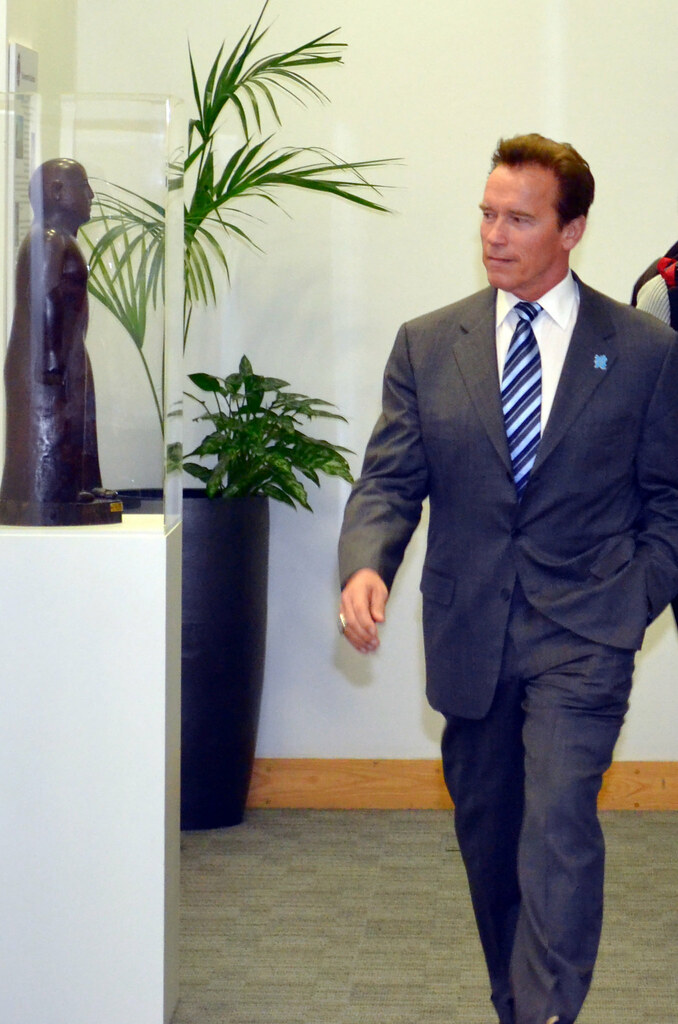
9. **A Brother’s Legacy: Supporting Patrick**Amidst the complex and often distant family relationships that marked Arnold Schwarzenegger’s early life, a poignant act of connection emerged after the tragic death of his brother, Meinhard. Meinhard had left behind a young son, Patrick, who was only three years old at the time of his father’s fatal car crash. This vulnerable child represented a direct link to the fractured family past, and in a surprising yet touching move, Arnold stepped in to ensure Patrick’s future.
Despite the emotional distance that characterized his relationship with his own father and, by extension, perhaps even his brother, Arnold took on a profound responsibility. He “paid for Patrick’s education and helped him to move to the U.S.” This generous and practical gesture speaks volumes about a deeper sense of family, a quiet acknowledgment of his brother’s legacy, and a commitment to protecting the next generation. It showcased a different side of Arnold, one that extended beyond personal ambition to embrace a form of familial duty.
This act of support for his nephew can be seen as a silent form of personal reconciliation or perhaps a private expression of grief and care that transcended his earlier, more detached responses to his family’s tragedies. It demonstrates that even as Arnold meticulously built his own empire, the threads of his past, particularly the needs of those connected to his origins, were not entirely severed. His ability to provide for Patrick was also a powerful symbol of the financial success he had achieved, allowing him to extend a helping hand where it was desperately needed.
Patrick’s journey to the U.S. under Arnold’s wing symbolized not just a new beginning for the young boy, but also a quiet continuity within Arnold’s evolving definition of family. It highlighted that while his origins were marked by pain and detachment, his journey ultimately encompassed moments of profound connection and responsibility. This later family connection enriched his unique journey, demonstrating that even a self-made man, driven by a fierce need for independence, could still anchor himself to those who needed him most.
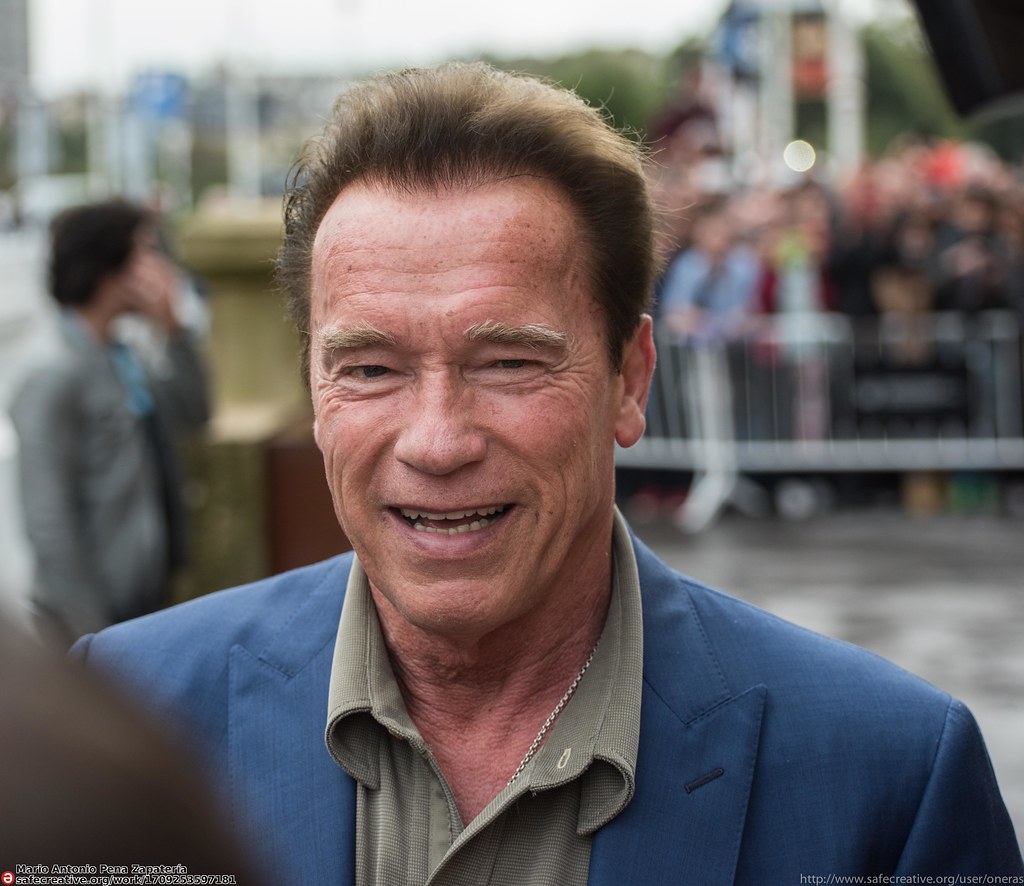
10. **Overcoming Personal Hurdles: Language and Dyslexia**Arnold Schwarzenegger’s journey to global superstardom was not without its own significant personal hurdles, beyond the complex family dynamics he navigated. Upon arriving in the United States in 1968, he was “speaking little English,” a formidable obstacle for someone aspiring to make a mark, especially in fields like acting. This language barrier was immediately apparent in his first film, *Hercules in New York* (1970), where his “accent in the film was so thick that his lines were dubbed after production.” Early on, agents and casting directors were dismissive, telling him his body was “too weird,” his accent “funny,” and his name “too long.”
Yet, Arnold’s characteristic determination shone through. Rather than being deterred, he actively sought to improve. The context mentions that “Staying in the East End of London helped Schwarzenegger improve his rudimentary English” during an earlier bodybuilding stint, showing his proactive approach even before his permanent move to the U.S. Once in California, he enrolled in “an assortment of courses at Santa Monica College in California (including English classes),” alongside further studies at UCLA, systematically working to refine his communication skills and overcome these initial rejections.
Adding another layer to his personal struggles, Arnold “struggled with reading and was later diagnosed as being dyslexic.” This often-hidden learning disability would have presented a quiet, yet persistent, challenge throughout his academic pursuits, including earning his bachelor’s degree in business administration and marketing through distance education. It underscores the incredible mental fortitude required to not only excel in physical endeavors but also to pursue higher education and a demanding career in acting and politics, all while quietly battling a fundamental learning difficulty.
His persistence in the face of these personal and academic challenges is a testament to his unbreakable will. The *LA Weekly* aptly described him in 2002 as “the most famous US immigrant,” one who “overcame a thick Austrian accent and transcended the unlikely background of bodybuilding to become the biggest movie star in the world in the 1990s.” These struggles, far from breaking him, became integral to his unique journey, highlighting his ability to conquer internal and external obstacles with the same resolve he applied to his physical training and career ambitions. They are a powerful reminder that true strength often lies in relentlessly pushing past perceived limitations.
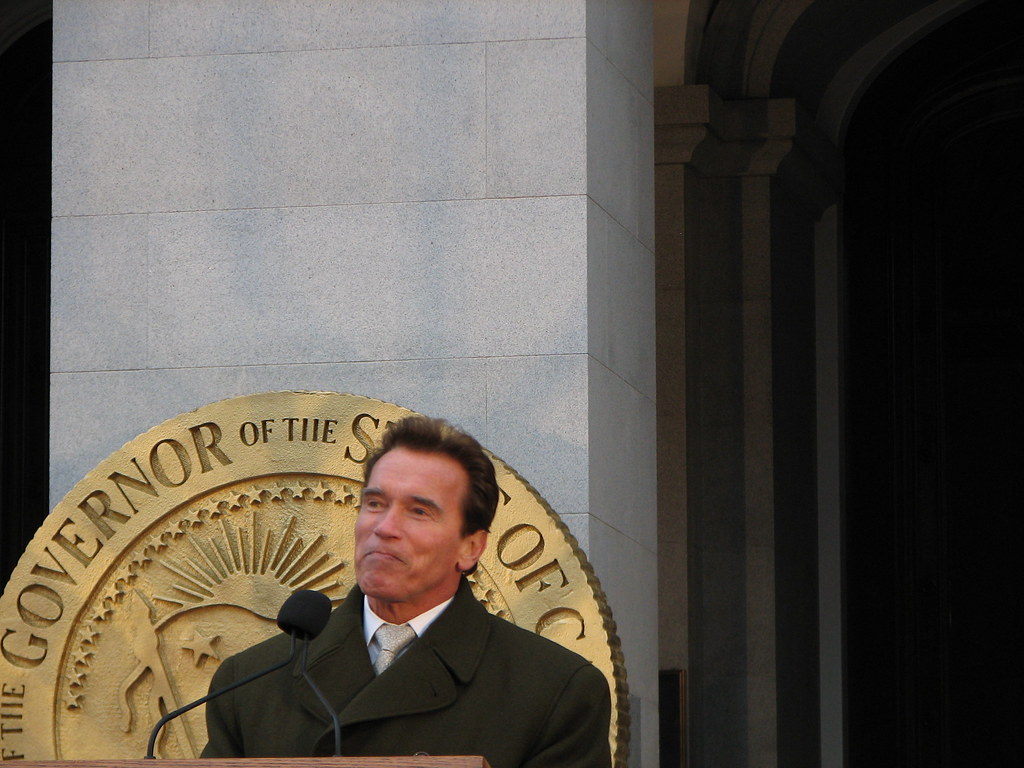
11. **Forging a Political Identity: The Republican Convert**Beyond his transformative journey from bodybuilder to actor, Arnold Schwarzenegger carved out a distinctly personal political identity that further defined his unique journey and enduring legacy. His political views were always well known, standing in sharp contrast to the predominantly left-leaning sentiment often found among prominent Hollywood stars. This independent stance was not merely a convenience but a deeply held conviction rooted in his personal experiences and philosophy, shaped by his very escape from Europe.
Arnold himself recounted the pivotal moment of his political awakening, a story that vividly illustrates his break from his past and embrace of a new ideology. Upon his arrival in America in 1968, he keenly observed the Nixon–Humphrey presidential race on television. He recalled, “I heard Humphrey saying things that sounded like socialism, which I had just left.” This immediate aversion to socialist rhetoric, having firsthand experience of a system he wished to leave behind, solidified his perspective. He was seeking a new path, a new ideology that championed individual freedom and opportunity.
Then he heard Nixon speak. The words resonated deeply with Arnold’s burgeoning American dream: “He was talking about free enterprise, getting the government off your back, lowering the taxes and strengthening the military.” These principles spoke directly to his desire for self-reliance and unfettered ambition. Without hesitation, he turned to his friend and declared, “What party is he?” Upon learning Nixon was a Republican, Arnold stated, “Then I am a Republican. And I have been a Republican ever since.” This wasn’t a casual affiliation; it was a foundational declaration of his ideological alignment, deeply connected to his escape and his vision for personal success.
This early commitment to Republican ideals was a direct extension of the “rebel” spirit forged in his challenging Austrian youth. It mirrored his fierce independence and his relentless pursuit of a life unburdened by external constraints or imposed conformity. His political stance was thus an integral part of his self-made identity, a public affirmation of the principles he believed had allowed him to thrive in the “land of opportunity.” It was a bold statement, further distancing him from his origins and solidifying his unique position as an immigrant who fully embraced the American ethos of individual achievement.
His steadfast adherence to these beliefs eventually led him to the highest office in California, serving as governor from 2003 to 2011. This political career was the ultimate manifestation of his enduring legacy, demonstrating that the individual drive born from a complex family history and a desire to escape could lead to influence far beyond the worlds of bodybuilding and Hollywood. It truly defined his unique journey, proving that the boy who yearned to be “somebody” not only achieved it but did so on his own fiercely independent terms.
Arnold Schwarzenegger’s story is far more than a tale of muscle and movies; it’s a testament to the unyielding human spirit, sculpted not just by iron, but by the fire of adversity. From the shadowy complexities of his family life to the glittering heights of global fame and political power, his journey reveals a relentless pursuit of self-definition. He didn’t just break free from the past; he repurposed its pain into purpose, transforming unseen cracks into the bedrock of an extraordinary, self-made life. It’s a powerful reminder that even the most challenging beginnings can forge an indomitable will, proving that dreams, when pursued with such singular focus, can indeed reshape destiny and leave an indelible mark on the world.

